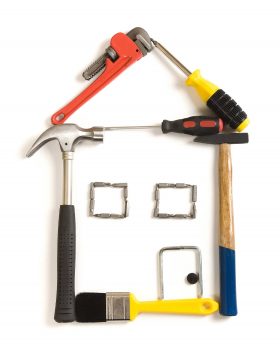
Whether you just bought a fixer-upper that needs more than just a little “TLC” or you’ve lived in your home for a few years and ready for a remodel, there are some things you should do and especially things you shouldn’t do. Of course, if you did buy a home that needs a little help, those will be at the top of your list. Older homes probably need a kitchen upgrade or the master bath could use some attention. Upgrading a kitchen and installing new appliances, countertops and cabinets will always add value to the home as will a new master bath.
For those who are selling a home, paying attention to these areas will always appeal to prospective buyers. But just as you can make certain improvements that will add value to your home, the opposite is true with other upgrades. Some changes to your home can actually detract value from your home. Here are seven you should rethink.
Turning an extra bedroom into a home office
The concept of a separate home office was popular for a while but these days there’s just not that much of a demand. If you work full time from home, sure, you need some separate space to work, but dedicating an entire room just so you can work from your computer really doesn’t make a lot of sense. Especially if the extra space you’re converting is or can be used as a bedroom. Think about that for a moment. When you see a home listed for sale, what is typically the leadoff feature? The number of bedrooms. The more bedrooms, the more valuable the house.
Too many kitchen upgrades
Your kitchen is the most social of all rooms. When entertaining, the kitchen area is all abuzz and exciting. So it makes sense to upgrade the kitchen with shiny new appliances, countertops, and cabinets. Kitchen upgrades are also the most expensive when you look at how much money goes into the upgrade compared to the square footage of the space. But unless you really don’t care how much you spend, don’t just buy the most expensive, high-end appliances. Look for something with good quality that adds value.
Giving your green thumb too much exercise
Some people love to garden, however, many people see this as work. From planting to fertilizing to maintenance, someone who doesn’t appreciate gardening will wonder how much time and effort is needed to keep a lush garden in its wonderous state. You do however need good landscaping including a manicured lawn, shrubbery perhaps and some color. But if almost every square inch of your yard has something that needs to be watered and maintained regularly, it will attract fewer buyers who just don’t think much of spending their weekends on hands and knees outside.
Building a pool
This is another item that some will love and some won’t. A swimming pool is an expensive proposition not just in terms of initial construction cost but pool maintenance is a constant issue. Keeping the pool clean from residue and leaves as well as keeping the pH content and chlorine at proper levels. Further, a swimming pool can be a bad idea when very young children are around. So, those with kids and others who would rather read a book than sweep the swimming pool means fewer potential buyers.
Installing a full-blown chandelier when a simple light fixture could work
Lavish lighting fixtures look nice at the hardware store with multiple light fixtures and chandeliers which brighten the entire area. It’s attractive, for sure. But remember those stores are designed with very high ceilings, tall shelves and lots of space for display. That makes it hard to really see what a lavish addition would ultimately look like in your home. Too big, and it’s simply overwhelming. Instead, consider up to date lighting that will brighten up your room without being distracting or garish.
Unless you’re a licensed contractor, or real handy, try to avoid the DIY approach
Some improvements you can do on your own with little to no problems. But to do it right you sometimes need a pro that does these things on a daily basis. Even painting an interior wall will look better when done by a pro. Plumbing work? Tile work? Cabinets? Some of these upgrades require more skills than you may have. And certain DIY projects such as an outdoor deck, for example, can easily show it wasn’t built by a carpenter, but by a do-it-yourselfer.
